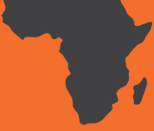 Sono trenta i paesi dell’Africa sub-sahariana che sembrano avere accelerato i loro progressi verso il conseguimento degli obiettivi di sviluppo del Millennio nel corso degli ultimi tre anni. E’ questo il dato più eclatante secondo la ricerca effettuata dalla ong ONE. Rwanda, Etiopia, Malawi, Ghana e Uganda sono tra i top performer dell’Africa sub-sahariana nell’edizione 2013 dell’indice di raggiungimento degli MDGs pubblicato mercoledì scorso.
Sono trenta i paesi dell’Africa sub-sahariana che sembrano avere accelerato i loro progressi verso il conseguimento degli obiettivi di sviluppo del Millennio nel corso degli ultimi tre anni. E’ questo il dato più eclatante secondo la ricerca effettuata dalla ong ONE. Rwanda, Etiopia, Malawi, Ghana e Uganda sono tra i top performer dell’Africa sub-sahariana nell’edizione 2013 dell’indice di raggiungimento degli MDGs pubblicato mercoledì scorso.
L’indice, sviluppato dal policy director Ben Leo presso il Center for Global Development Thinktank, confronta i progressi osservati nei paesi su otto indicatori degli MDGs con le stime di quello che sarebbe necessario per il loro raggiungimento.
Ai paesi sono assegnati punteggi per ogni target, con un punteggio complessivo di 8,0, un paese è sulla buona strada per raggiungere tutti gli obiettivi del millennio.
Ecco i principali risultati dell’indice 2013 rispetto all’edizione dello scorso anno.
- Alcuni paesi africani hanno visto incrementi particolarmente forti nei loro punteggi complessivi. Il Rwanda, per esempio, è passato da tre a sei, avvicinandosi alla Cina.
- Le Maldive hanno superato la Cambogia come paese top-performing, sulla buona strada per raggiungere tutti gli obiettivi MDG fondamentali che compongono l’indice. Il punteggio della Cambogia è sceso da 8,0 dello scorso anno a 7,0.
- Dal 2010, 49 paesi poveri hanno migliorato i loro punteggi complessivi, 17 sono diminuiti e 10 sono rimasti gli stessi. Ciò riflette “una tendenza generale di progresso accelerato, sia pure con sacche di ritardo”, così si legge nel rapporto.
- Trenta paesi dell’Africa sub-sahariana sembrano aver avuto un progresso accelerato negli ultimi tre anni. Allo stesso tempo, alcuni paesi con popolazioni numerose, come la Nigeria e Repubblica Democratica del Congo, stanno fallendo in molti settori e rallentando i progressi regionali.
Ben Leo ha dichiarato di aver progettato questo indice per combattere una visione troppo generica del processo di raggiungimento degli MDGs che utilizza dati aggregati per area regionale. Questi assegnano all’Africa sub-sahariana un risultato estremamente negativo nella corsa verso il 2015. Secondo Leo questo maschera i risultati dei singoli paesi, le cui storie hanno bisogno di essere prese in esame nello specifico per capire perché alcuni hanno visto maggiori progressi di altri.
Ma quanto sono attendibili i dati dell’indice di ONE?
E’ il quotidiano inglese Guardian a mettere in evidenza le debolezze dell’indice. Si tratta di uno studio che si basa troppo sui dati nazionali e stranamente la sua sezione sulla metodologia è piena di avvertimenti e postille. Si parla di possibile “volatilità di anno in anno dei dati paese a causa di una varietà di fattori, come la qualità dei dati, i cicli di bilancio e di shock esogeni”. “L’intervallo di tempo per la comunicazione dei dati in alcuni casi può variare di diversi anni, o anche di un decennio, questo può limitare anche la precisione dei risultati. E’quindi difficile discernere chiaramente se le differenze di anno in anno siano guidati da cambiamenti di performance concreti, errore di misura o una combinazione dei due.” Sul post 2015 lo stesso Leo ammette che dovrà comunque essere perfezionata la capacità statistica soprattutto nella presa dei dati di partenza.
Nel frattempo sul fronte ONU il gruppo ad alto livello istituito dal segretario generale Ban Ki-moon e presieduto da David Cameron ha rilasciato questa notte l’atteso report di 81 pagine sul futuro degli MDG e su cosa verrà dopo il 2015. Questo il titolo:
A NEW GLOBAL PARTNERSHIP: ERADICATE POVERTY AND TRANSFORM ECONOMIES THROUGH SUSTAINABLE DEVELOPMENT
Guarda la diretta streaming della presentazione (31 Maggio)












Purtroppo numeri entusiasmanti non sempre riflettono un reale aumento del livello di scolarizzazione. Alcuni dei governi africani hanno capito il “meccanismo aureo dei MG”, e cioè che avvicinarsi agli obiettivi vuol dire ricevere incentivi ed aiuti dalle istituzioni internazionali, creando un perverso ciclo vizioso per il quale l'”importante è far numero”, ad esempio (nel caso del settore Istruzione, in uno dei Paesi dove ho lavorato) riempiendo le classi delle scuole primarie come pollai per bambini, intimando le scuole di promuovere tutti gli scolari anche se a stento sanno scrivere il proprio nome alla fine della quarta elementare e così incrementando i numeri a scapito del reale livello di scolarizzazione.
Early reactions to the High Level Panel Post-2015 report
May 30, 2013
Ban Ki-Moon is grateful. Sweden has won a great victory. Save the Children – it’s pretty good. Sightsavers: more comprehensive and ambitious than I dared hope. UK – let’s finish the job on poverty. ODI happy disaster risk reduction is in. President Johnson-Sirleaf: “we can be the first generation to eradicate global poverty.”
Oxfam fuming: “The Panel has failed to recognize the growing consensus that high levels of inequality are both morally repugnant and damaging for growth and stability.” “Really HLP? You *don’t* think the world needs to reduce inequality?” One Campaign welcomes specific commitment to ending poverty. Op-ed from John Podesta (plus his 5 minute take on YouTube) – American panelist:
President Barack Obama believes it. President Ellen Johnson Sirleaf of Liberia believes it. I believe it, too: By 2030, we can eradicate extreme poverty. This is not a hollow platitude. The generations living today are the first in human history that could eliminate extreme deprivation and hunger. It is critical that all nations strive to meet this goal. Not only for our own security, though we know that a more prosperous world is more stable, but because ending extreme poverty is the right thing to do.
UN Foundation: “a particularly significant and bold contribution to the development of a new framework to succeed the Millennium Development Goals.” DFID has a snazzy infographic. Grand Challenges Canada – it’s a smorgasbord. Patricia Espinosa (Mexican panelist): “Además de completar las Metas de Desarrollo del Milenio, la nueva agenda debe crear bases para la prosperidad de las generaciones futuras.”
WaterAid: “delighted that the Panel has heard the call for a goal on universal access to water and sanitation. We will only succeed in ending poverty if ambitious targets are also agreed that by 2030 everyone everywhere has access to water, sanitation and hygiene.” IISD analysis.
BBC leads with end poverty angle, but notes failure to include goal on income inequality:
Among 12 measurable goals set out in the report are an end to child marriage and equal rights for women to open bank accounts and own property. The panel also recommends bringing together development and environmental agendas, with targets for reducing food waste, slowing deforestation and protecting ecosystems.
It also stresses the need for countries to give citizens confidence in their governments by promoting the rule of law, free speech, transparency and cracking down on corruption.
Economist: towards the end of poverty (not always with us). Guardian focuses on lack of inequality:
Nice goals, but the elephant in the post-2015 room is inequality,” said Andy Sumner, a development economist at King’s College London. “We find in our number-crunching that poverty can only be ended if inequality falls so one should ask: where’s the inequality goal? Something resembling that elephant in the room is hidden in annex 1 of the report, but will anyone remember an annex note in 2030?
Claire Melamed – missed opportunity on global partnerships:
While getting global agreement on much of this agenda is notoriously difficult and the report can’t change that, the panel could have helped the politics along by linking the most difficult issues to specific outcomes – improved trade rules to job creation and equitable growth, for example, or financing commitments to outcomes in health or education (so, rather than a generic commitment to spend 0.7% of gross national income on aid, commitments to provide financing to meet specific objectives in other goals).
WRI – a major breakthrough on sustainability. UNFPA – welcomes goal to end child marriage. WWF: “there is finally recognition that poverty cannot be eradicated and the well-being of people across the globe cannot be secured without addressing the grave pressures on the environment and the natural systems that support human life on this planet.”
Reuters:
Among the recommendations, the 69-page report says large businesses should be obliged to report social and environmental impacts, in addition to their financial accounts.
Mark Leon Goldberg: important proposal for Global Partnership on Development Data. Charles Kenny:
The biggest positive of the report is the example it sets for the formal negotiations on post-2015. The panel was a group 27 people including three heads of state and numerous others with very close ties to or roles in different national governments. If they can agree twelve ‘indicative’ goals that are reasonably coherent, somewhat selective, and involve a lot of targets that are important, compelling, time bound and measurable, maybe (maybe) the UN General Assembly can manage something similar.
And Tearfund – making probably the most important point of all: “It’ll be interesting to see how quickly we can work together globally to break the political deadlock which has so far prevented this vision from becoming reality.”